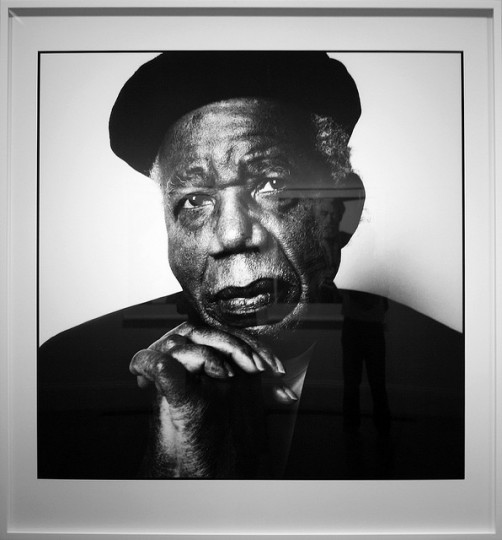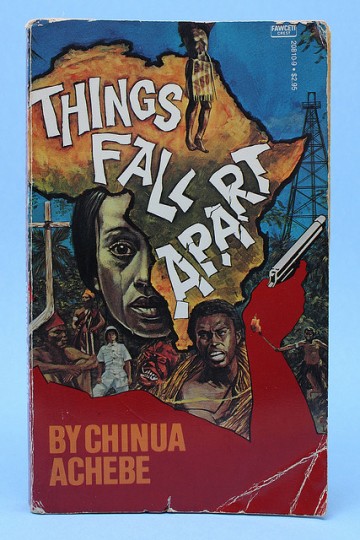“The white man is very clever. He came quietly and peaceably with his religion. We were amused at his foolishness and allowed him to stay. Now he has won our brothers, and our clan can no longer act like one. He has put a knife on the things that held us together and we have fallen apart.”
Chinua Achebe in Things Fall Apart (1958)
I wasn’t planning on writing a blog about the recent passing of the late, great, Chinua Achebe. However when I thought about the many contributions the author, poet and academic has made during his lifetime, I felt compelled to somehow mark his passing. Unlike recent obituaries, Chinua Achebe’s was fleeting in mainstream media.
It was Achebe’s groundbreaking novel Things Fall Apart published in 1958 which, for the first time opened the door to Africa from the inside. In the words of Nelson Mandela, Achebe brought “Africa to the rest of the world”.

Achebe’s groundbreaking contribution to African literature has reportedly sold 10 million copies and in over 50 languages worldwide. The novel was one of the first pieces of literature that was written and published by an African author and is as Fintan O’Toole points out
“the book from which all modern African fiction emerges.”
Prior to this, nearly all literature about Africa was written from and by a colonial perspective that was so contrary to the reality. So enraged by these views, Achebe wrote and presented an essay paper challenging the racism in the famous novel Heart of Darkness by Joseph Conrad, in which he accuses Conrad of dehumanising Africans.
It is widely known that the title for the 1958 novel was inspired by none other than Ireland’s W. B. Yeats. However, a recent article in The Irish Times by Fintan O’Toole he associates the motivation for Achebe’s novel in response to Irish author Joyce Cary’s portrayal of the Nigerian in his novel Mister Johnson, set in Nigeria and written in 1939. Writes Cary,
“Its people would not know the change if time jumped back fifty thousand years. They live like mice or rats in a palace floor; all the magnificence and variety of the arts, the ideas, the learning of the battles of civilisation, go over their heads and they do not even imagine them.”
It was the success of this novel as an ‘authentic’ representation of the African throughout the UK and US at the time that drove Achebe. In a 1972 interview he said,
“One of the things that set me thinking was Joyce Cary’s novel, set in Nigeria, Mister Johnson, which was praised so much, and it was clear to me that it was a most superficial picture, not only of the country but even of the Nigerian character, and so I thought that if this was famous, then perhaps someone ought to try and look at this from the inside.”

Since his first groundbreaking novel, Achebe has written more than 30 works of novels, short stories, poetry, essays, criticism, non-fiction and political commentary and even children’s books. He has consistently been critical of the failures of leadership, corruption and poverty of his native Nigeria. He twice rejected the title of Commander of the Order of the Federal Republic in 2004 and 2011, explaining
“What’s the good of being a democracy if people are hungry and despondent and the infrastructure is not there?”
Through his writing, teaching and activism, Chinua Achebe was a profound voice for Africa and Africans. He was a writer ‘in whose company the prison walls fell down’ according to Nelson Mandela (former South African president, and anti-apartheid activist who was incarcerated during apartheid for 27 years). He was one of Africa’s most famous influential writers, the ‘father of African literature’.
Two of the remaining ‘pioneer quartets’ of Nigerian literature Wole Soyinka and J.P. Clark, commented on the passing of Achebe that
“Two voices have been silenced– one, of the poet Christopher Okigbo, and now, the novelist Chinua Achebe… We need to stress this at a critical time of Nigerian history, where the forces of darkness appear to overshadow the illumination of existence that literature represents. These are forces that arrogantly pride themselves implacable and brutal enemies of what Chinua and his pen represented, not merely for the African continent, but for humanity…No matter the reality, after the initial shock, and a sense of abandonment, we confidently assert that Chinua lives. His works provide their enduring testimony to the domination of the human spirit over the forces of repression, bigotry and retrogression.”
If you are interested in learning more about African literature check out the www.africabookclub.com or https://www.african-writing.com/nine/
If you are interested in learning more about Chinua Achebe’s Things Fall Apart check out the book review in our resources section.
Chinua’s always had the role of ‘power’ across different facets of society within his writings: who has it; who does not; how is it used. Being neutral, as an activist writer, may not have been one of his strengths. His popularity and resonance with readers over the last fifty years is testament to the challenging perspectives that the politics of everyday life in Nigeria present to the world, not just Africans.
“…Let me say that I do think decency and civilization would insist that the writer take sides with the powerless. Clearly, there’s no moral obligation to write in any particular way. But there is a moral obligation, I think, not to ally oneself with power against the powerless. I think an artist, in my definition of that word, would not be someone who takes sides with the emperor against his powerless subjects.”
Chinua Achebe in There Was A Country: A Personal History of Biafra (2012)
______________________________
Explore more…
- Also check out SparkNotes https://www.sparknotes.com/lit/things/ which includes summaries and analysis of each chapter of Things Fall Apart, plot overviews, explains the main themes across the novel, facts, study questions and essay ideas and much more.
- Listen to Chinua Achebe talking about Things Fall Apart to the BBC World Service World Book Club in 2008 https://www.bbc.co.uk/worldservice/meta/dps/2008/01/nb/080128_chinua_achebe_au_nb.asx
